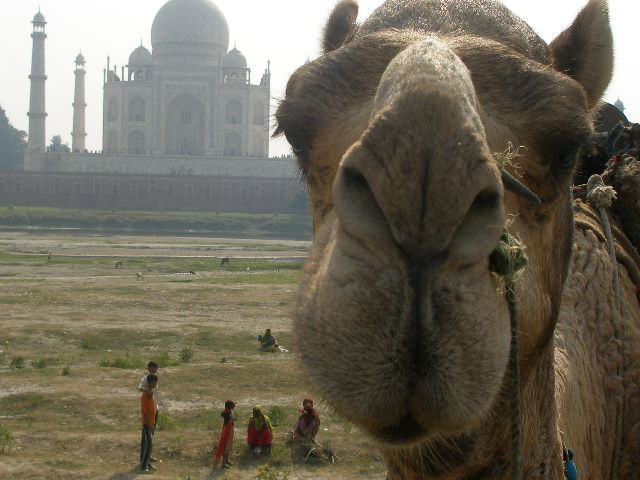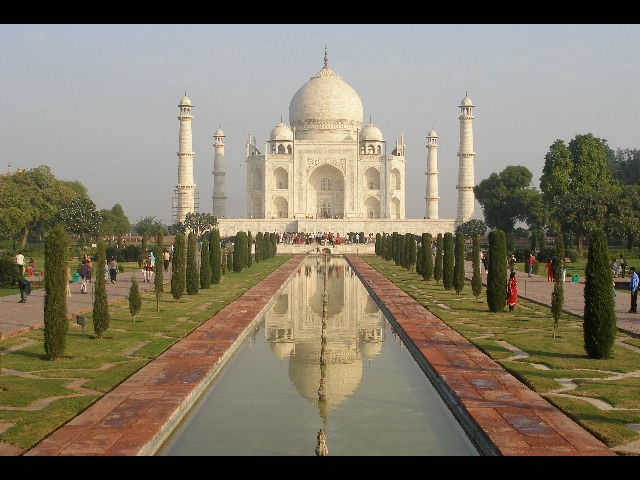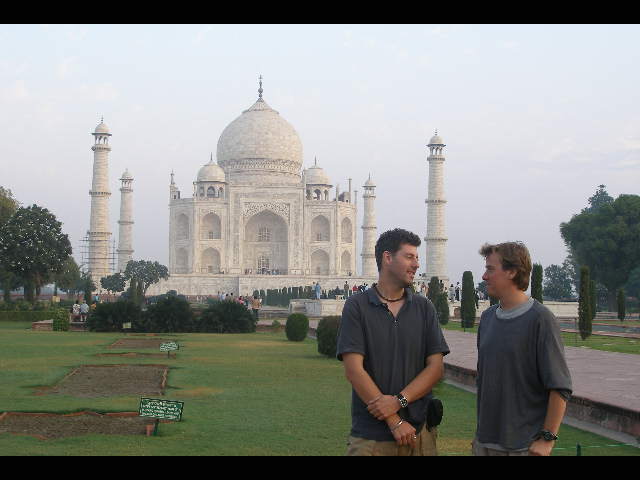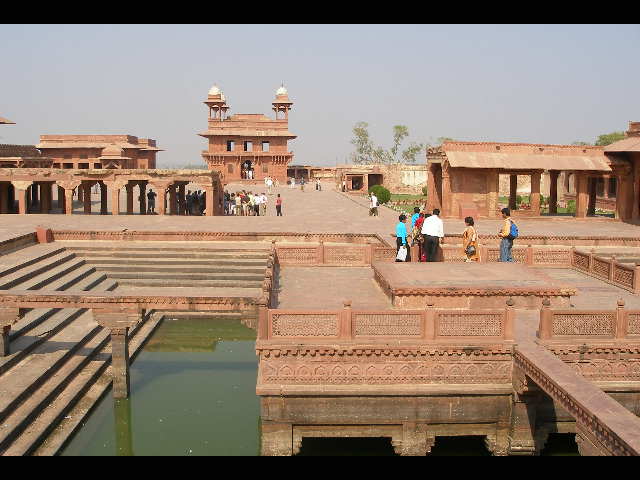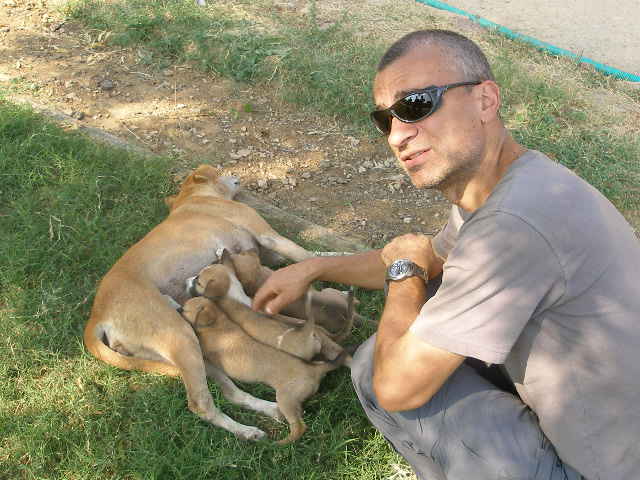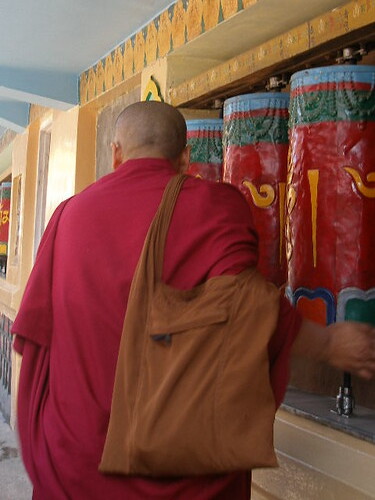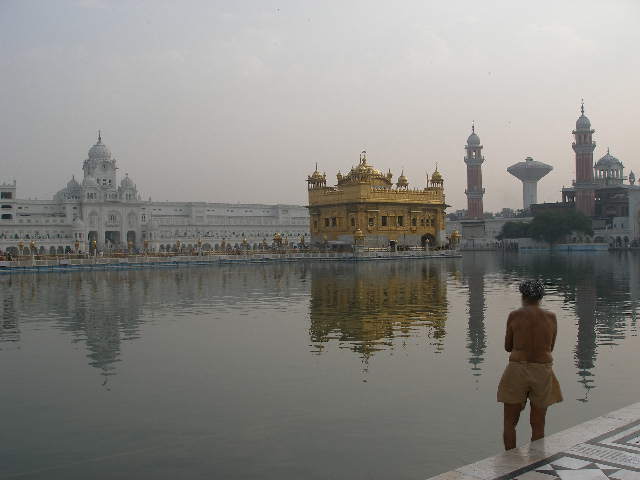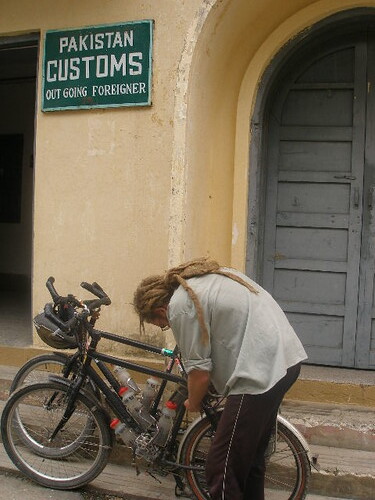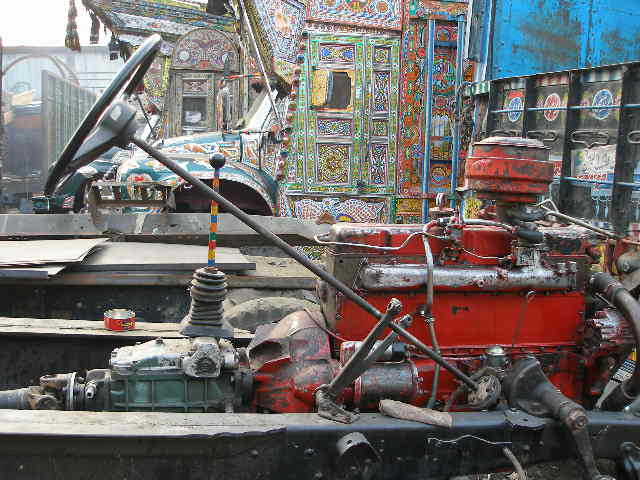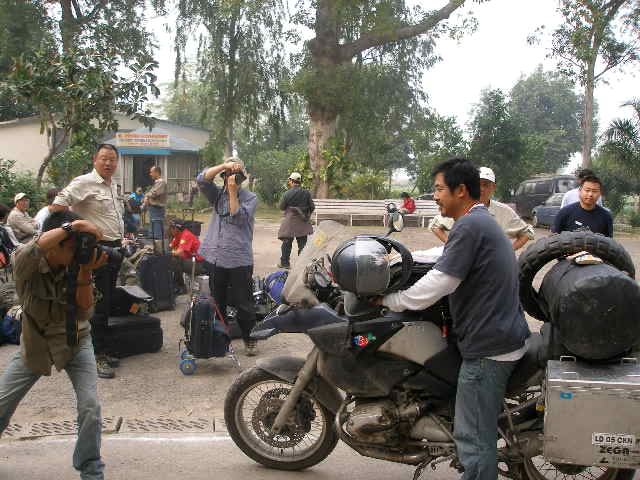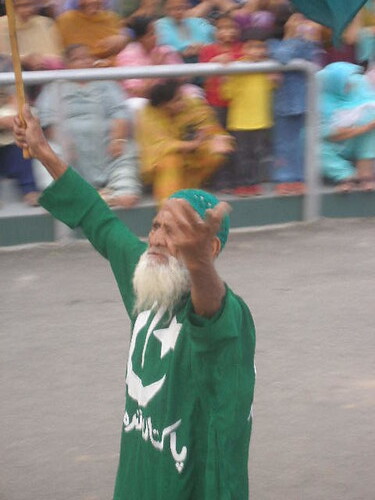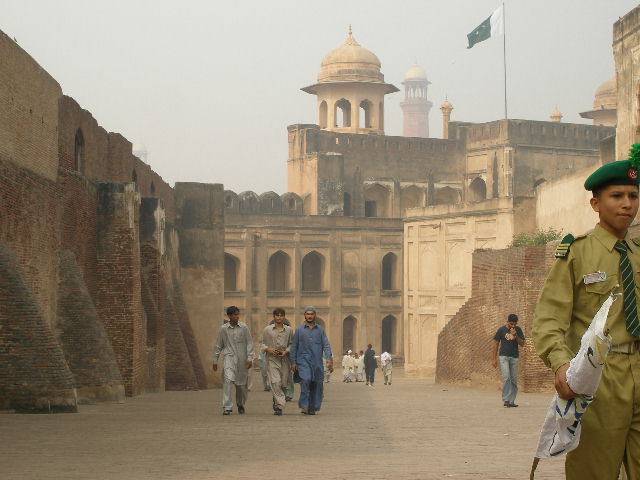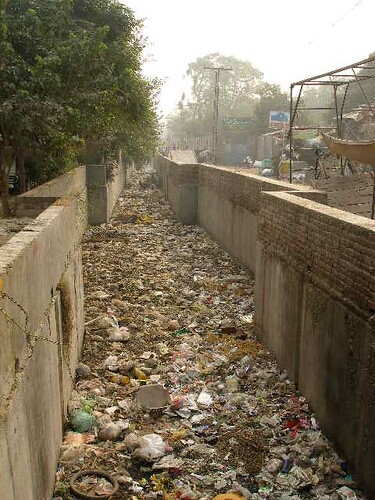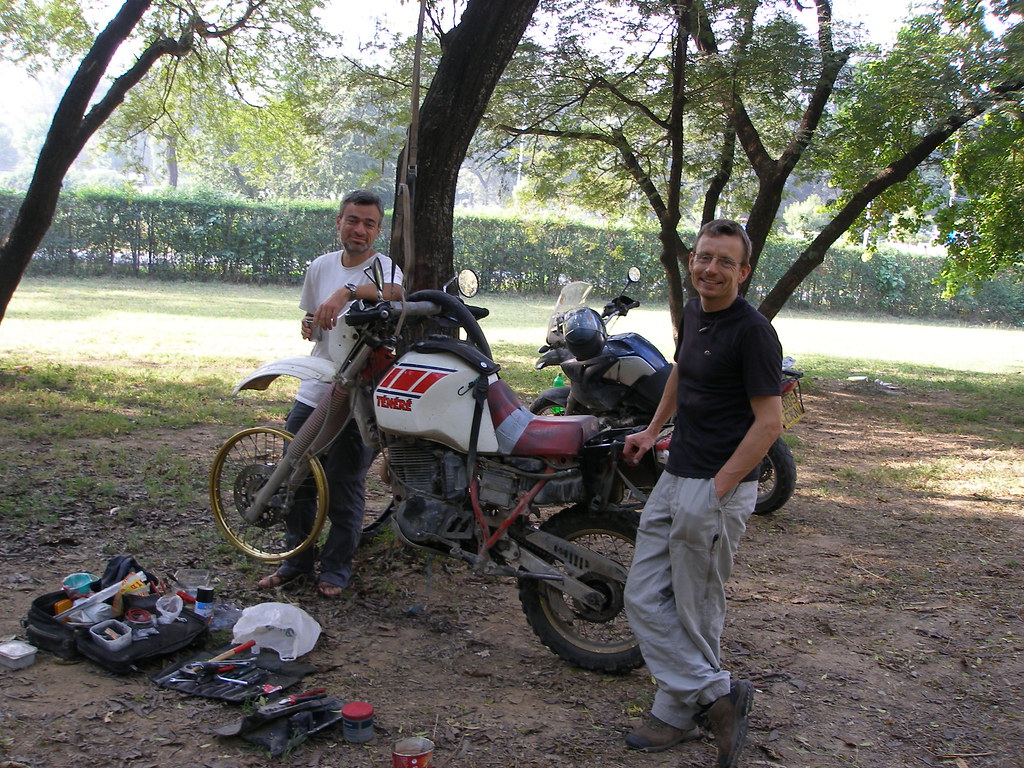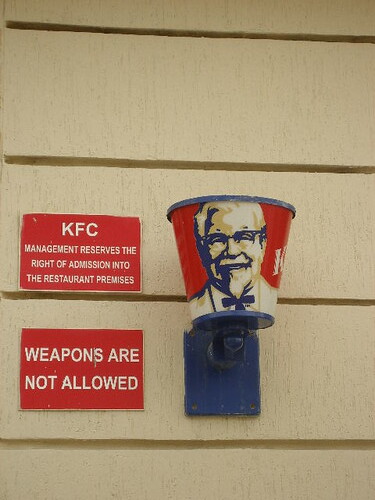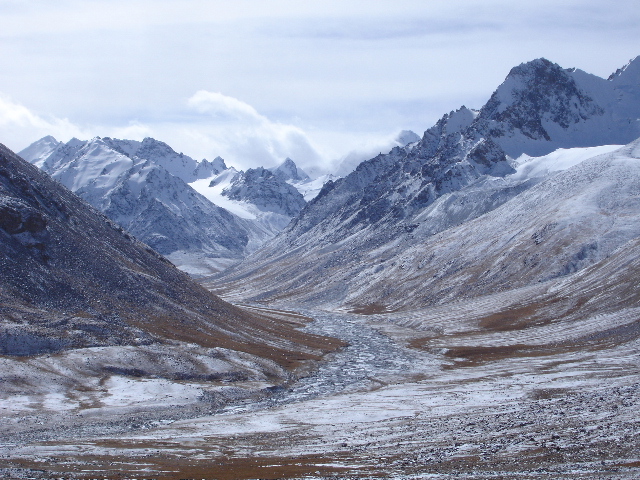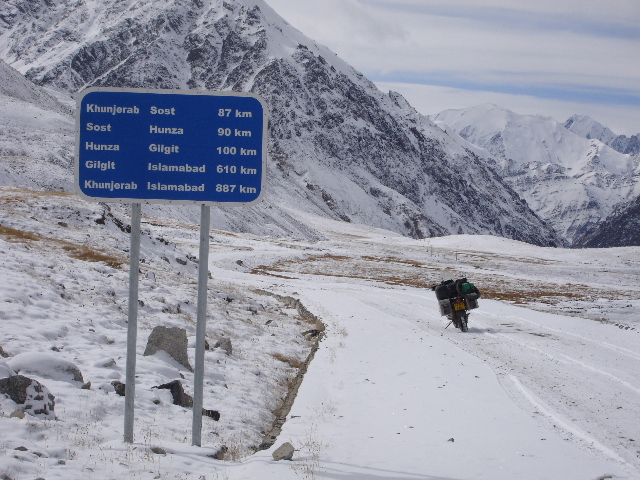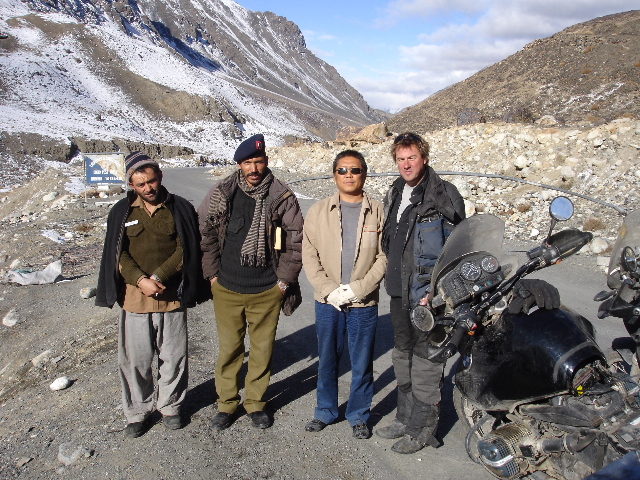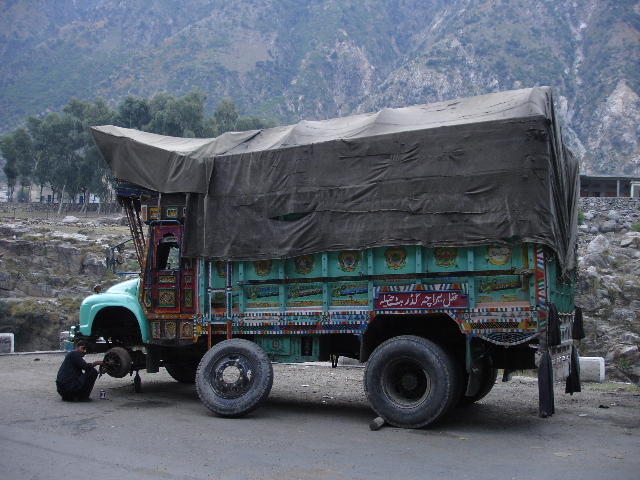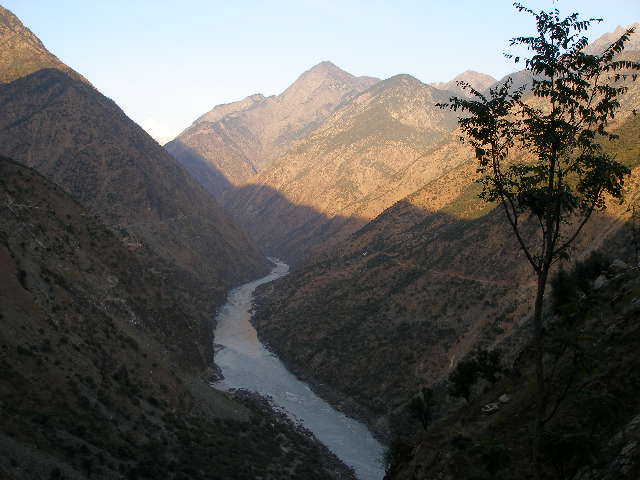 A view from the Karakoram Highway which the Karakorum, Hindu Cush and Himalaya mountain ranges all cross at various points
A view from the Karakoram Highway which the Karakorum, Hindu Cush and Himalaya mountain ranges all cross at various pointsOur journey from Kashgar in China to Pakistan's capital Islamabad along the Karakoram Highway was a five day ride through some of the most amazing scenery we have seen so far. We reached the Chinese/Pakistani border with relative ease: the Chinese part of the Karakoram Highway was a superb new road and our Chinese guide (a Chinese law requirement!) meant that we had no problems with the Mandarin only road signs.
A view from China of the mountain range over which the Kunjerab Pass crosses
The actual border is the 4665 metre Kunjerab Pass which we had heard was the highest road pass in the world, although we have since been corrected in this misassumption the highest road pass being on one of the roads to Lhasa. We had been expecting to face problems with snow on the road given the time of year we were travelling the Karakoram Highway, but up until the border we had been pleasantly surprised by the fact that the roads were snow free and easy to ride. However, when we got to the Pakistani border itself the situation immediately changed and we were greeted by a cheery Pakistani policeman who told us that the snow covered road we could see stretching way out in front of us only lasted for five kilometres (or so, maybe, perhaps, possibly). Tom, in particular, found the first kilometre of this road very tough and owing to his bike's road tyres he was having to work very hard keeping his bike from slipping everytime he tried to move. That said, no matter how hard he tried he just couldn't help his bike falling periodically and since I had to help him pick up his bike (our bikes are not light!) everytime it fell this made our progress very stop/start.
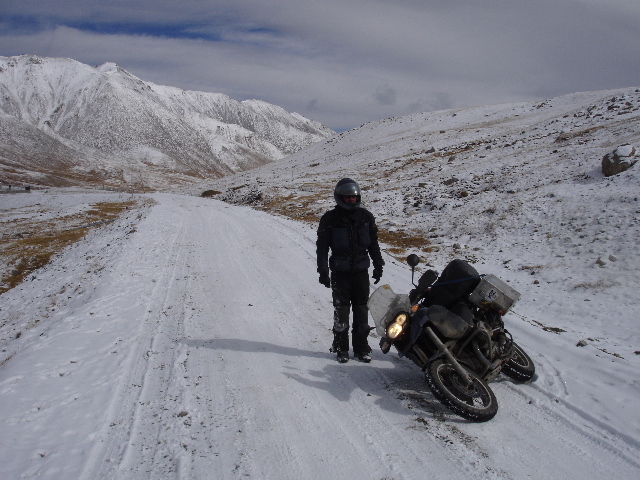
Tom has trouble with the snow just after we have crossed the Kunjerab Pass
Things suddenly got worse for us when, on one of the occasions I had been helping Tom with his bike, I remembered I had stupidly left my ignition on. Normally this would not have been a problem, but since it was so cold on the pass I had my heated grips on and when I got back to my bike I found that this had drained the battery to the extent that my bike wouldn't start. Repeated attempts at trying to bump start my bike failed and quickly noting that this road was not the busiest in the world (two cars passed us in an hour and a half) we decided to head down the mountain to get out of the snow line hoping we would be more likely to get some sort of help there.
Minutes before I find I have a flat battery I was contemplating how far we have to ride to get to the Pakistani customs post at Sost (also the first settlement we were going to get to Pakistan)
After six hours of alternately pushing (oddly we quite often found ourselves having push my bike downhill - work that one out if you can because I have no idea why that was!), trying to bump start and freewheeling the bike we found ourselves at a small police checkpost a mere fifteen kilometres from the Kunjerab Pass. We were exahusted and we are both eternally grateful to the fantastic guys at there who gave us a place next to their roaring coal stove, hot, sweet tea, bread and a bed each for the night. As an aside we passed this, our first night in Paksitan, as illegal immigrants as we had made so little progress that we had not even made it to the Pakistani customs post way down the valley in Sost.
The morning after the night before Tom poses with some of the the police (and a random Chinese road engineer) who put us up for the night after we'd finally pushed my bike out of the snow line and down the mountain
The next morning we managed to get my bike started after Tom came up with the great idea of using copper wire to drip charge the battery in my bike. Our initial problem of where to get copper wire four and a half thousand metres up a mountain was quickly solved by one of the policemen who cut a section of cable out of some nearby telephone wires handily running right next to the police hut. It later emerged that the wires had come down in a storm a while ago and so we weren't actually cutting off all means of communications between the police hut and the outside world! Leaving the police post we carried on down the Karakoram Highway reaching Sost and the Palistani customs post just before lunch. The customs were a breeze and, once we had found someone not having tea or taking an early lunch who was able to stamp us into the country, we carried on our way with no-one seeming to care that we had been illegally there for a day already.
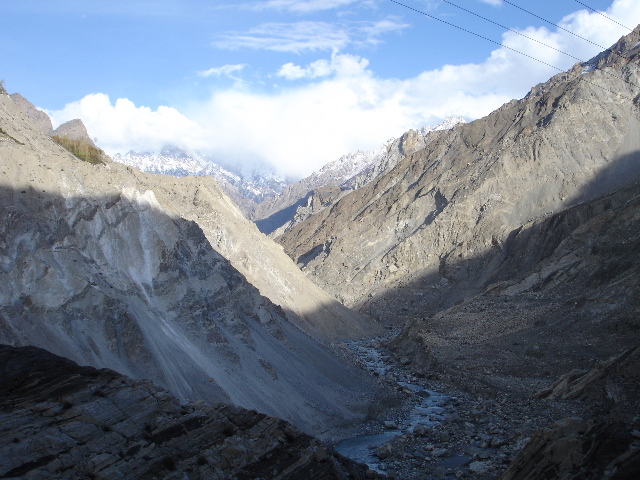
Some of the amazing secenery we saw from the Karakoram Highway
From Sost we spent three days travelling down the Karakoram Highway stopping at the picturesque town of Karimabad with its abandoned and crumbling fort looming high in the hills, the busy but otherwise uninteresting town of Giligit, the small town of Besham in the heart of Pakistan's infamous North West Frontier Province an area famous for fiercely independent tribes, colonial era intrigue and, in the modern day, for rumours of hidden Taliban strongholds and finally toward the end of the Karakoram Highway the British built hill station of Abbotabad. The only hiccup on the only journey was when Tom hit a pretty large pot hole at forty and took to the skies for five or six feet; the resulting crash left him a bit battered and with brakes that were not fully functioning. Thanfully he could still continue and now we are in Islamabad we will try and sort the problem out and get the brakes back to normal before we tempt fate any further and continue.
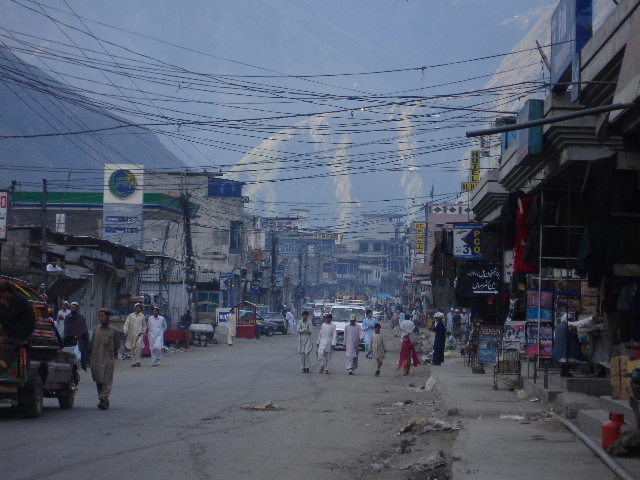
Besham first thing in the morning - we'd been up early looking for the gun shop we had been told was in town, but at that time of the day we only found food, the gun shop wasn't open until later
A modified Bedford lorry with a flat tyre
It was around Abbotabad and on the road from there to Paksitan's purpose built capital of Islamabad that we had our first taste of just how bad we can expect riding the bikes to be in India. Overtaking (and undertaking!) at every opportunity (blind bends or not), tailgating, total disregard for any rules of the road and ancient British built Bedford lorries painted lurid colours and sporting a whole range of decorations, stickers and tassles, but belching black diesel fumes and causing huge tailbacks all give a taste of the bustle, energy and simple downright craziness of the Indian subcontinent.
Written by Peter
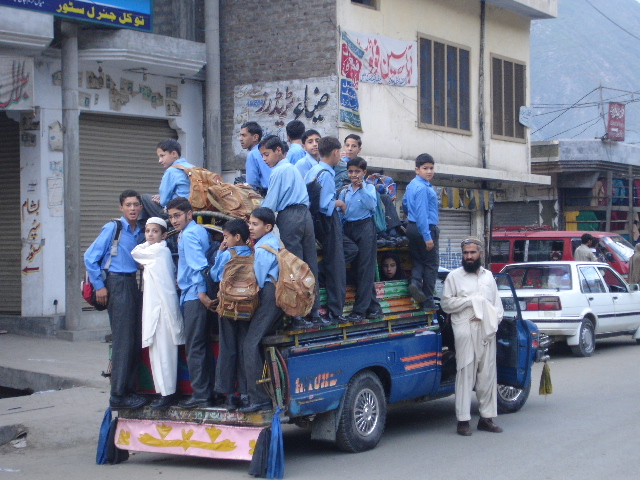 Children on their way to school in Besham
Children on their way to school in Besham
